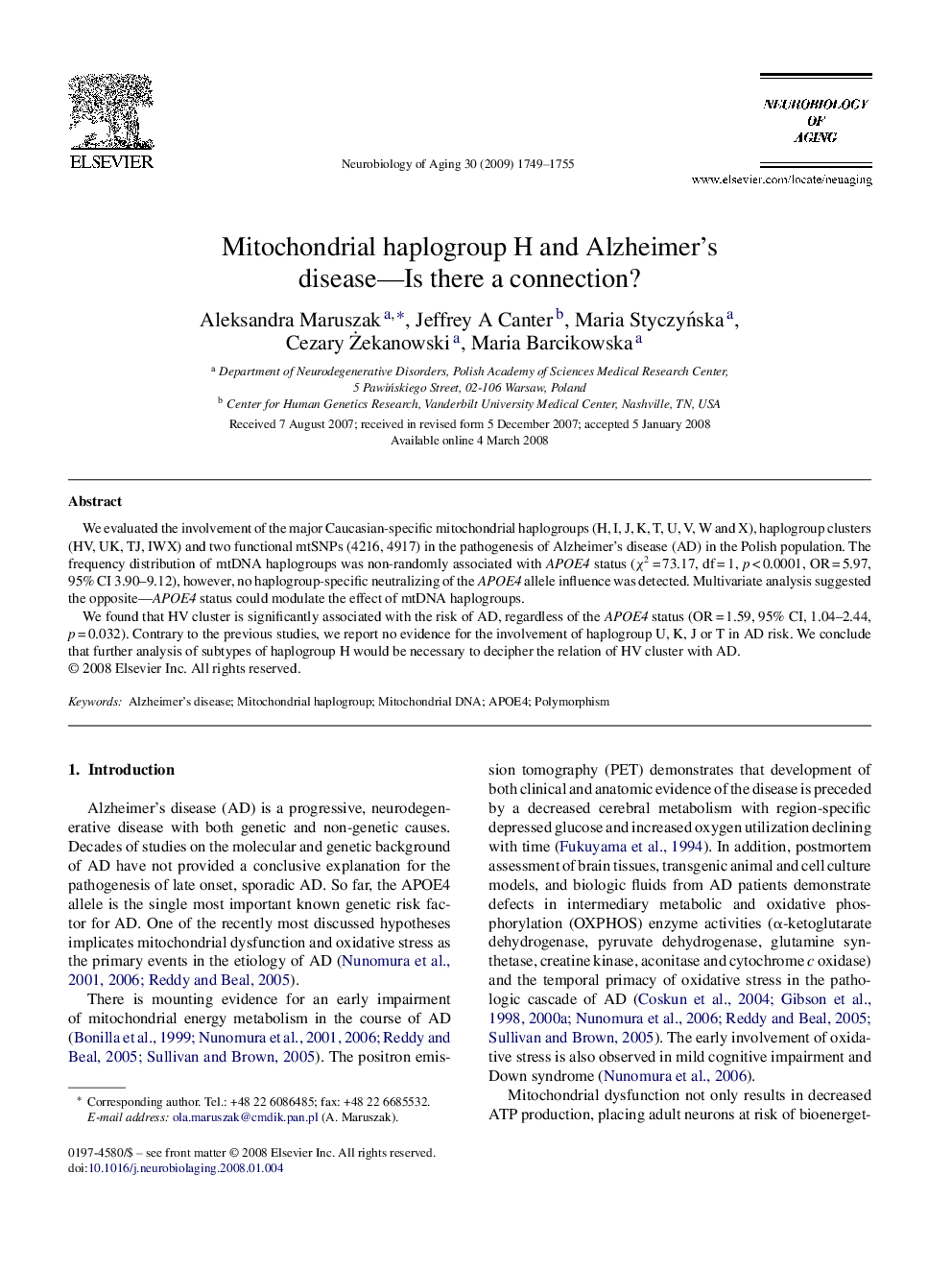| Article ID | Journal | Published Year | Pages | File Type |
|---|---|---|---|---|
| 329441 | Neurobiology of Aging | 2009 | 7 Pages |
We evaluated the involvement of the major Caucasian-specific mitochondrial haplogroups (H, I, J, K, T, U, V, W and X), haplogroup clusters (HV, UK, TJ, IWX) and two functional mtSNPs (4216, 4917) in the pathogenesis of Alzheimer's disease (AD) in the Polish population. The frequency distribution of mtDNA haplogroups was non-randomly associated with APOE4 status (χ2 = 73.17, df = 1, p < 0.0001, OR = 5.97, 95% CI 3.90–9.12), however, no haplogroup-specific neutralizing of the APOE4 allele influence was detected. Multivariate analysis suggested the opposite—APOE4 status could modulate the effect of mtDNA haplogroups.We found that HV cluster is significantly associated with the risk of AD, regardless of the APOE4 status (OR = 1.59, 95% CI, 1.04–2.44, p = 0.032). Contrary to the previous studies, we report no evidence for the involvement of haplogroup U, K, J or T in AD risk. We conclude that further analysis of subtypes of haplogroup H would be necessary to decipher the relation of HV cluster with AD.
